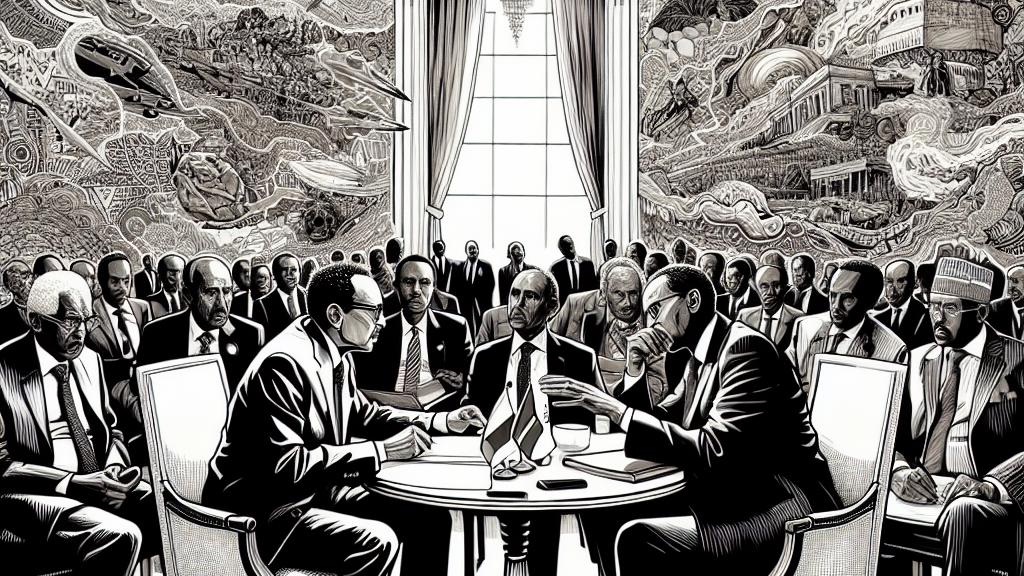New Beginnings: The Impact of the Ethiopia-Somalia Port Deal
Overview
- Ethiopia and Somalia reach a groundbreaking agreement to settle long-standing port conflicts.
- This deal involves leasing a segment of Somaliland's coastline, creating economic prospects for both nations.
- Turkey emerges as a crucial mediator, skillfully fostering dialogue to alleviate regional tensions.

The Setting
In early 2024, a transformative diplomatic event unfolded in Turkey, where Ethiopian and Somali leaders participated in significant negotiations focused on resolving their contentious port access issues. This agreement, heralded as a 'historic breakthrough' by Turkish President Recep Tayyip Erdogan, symbolizes a fresh chapter in the relationship between these two nations, emphasizing the pivotal role of dialogue in reshaping regional dynamics. With decades of rivalry and misunderstandings looming large, this moment offers hope, showcasing the potential for cooperative engagement in the Horn of Africa.
Understanding the Dispute
To truly appreciate the complexities of this development, one must understand the historical backdrop. Ethiopia, eager to secure access to maritime routes, controversially signed a deal with Somaliland, a territory that Somalia insists is its own. This resulted in accusations of aggression from Somalia, which views Somaliland's declaration of independence as illegitimate. The situation is further complicated by external influences, notably Egypt's backing of Somalia due to ongoing tensions over Ethiopia’s Nile dam projects. For instance, these disputes have historical roots dating back to border conflicts, highlighting how deeply entangled regional politics can be.
The Role of Turkey
Turkey's role as a peacemaker in this scenario has been nothing short of pivotal. By activating its solid relationships with both Ethiopia and Somalia, Turkey seeks to cultivate a more stable environment through open dialogue and mutual understanding. The sheer scale of Turkey's investments in Ethiopia, spanning sectors like construction and technology, couples with its military support to Somalia, painting a picture of a mediator with significant stakes in the outcomes. This proactive stance not only demonstrates Turkey's ambition to enhance its influence in the region but also underscores the importance of nurturing diplomatic ties as a means to prevent conflict. Turkish efforts thus reveal a broader strategy of blending economic interests with diplomatic initiatives, cementing Ankara as a key player in the Horn of Africa.
Looking Ahead
As the focus shifts toward further technical discussions slated for February, the anticipation grows palpable. The aim is to craft agreements that respect Somalia's sovereignty while simultaneously affording Ethiopia reliable access to critical maritime pathways. Nonetheless, significant challenges loom on the horizon. Ethiopia's past suggestions of recognizing Somaliland’s independence raise the stakes, provoking strong reactions from Somalia. This delicate balancing act is crucial, as the decisions made in the coming months will resonate far beyond these two nations, potentially impacting the stability of the entire Horn of Africa. Therefore, the outcomes of these discussions could set the stage for either a brighter cooperative future or a return to tensions that have historically burdened regional relations.

Loading...